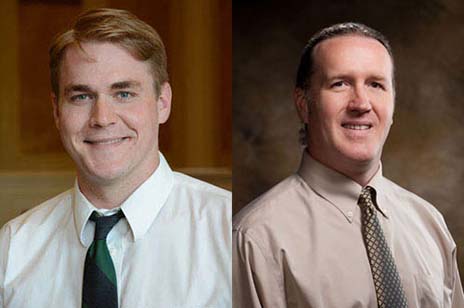FAYETTEVILLE, Ark. – The Arkansas PROMISE project based at the University of Arkansas is off to a good start on its goal of providing job training and paid work experiences for Arkansas teenagers with disabilities. The first steps of hiring staff and enrolling teenagers are well under way, program officials said.
In a little more than three months of recruiting, PROMISE staff members enrolled about 350 teenagers with disabilities, who all receive Supplemental Security Income and represent 23 Arkansas counties. Officials are confident the goal of recruiting 2,000 teens will be reached by April of 2016. Half of the group will receive the additional training and paid work experiences along with other services, and the other half will receive only the usual services provided to teens with disabilities.
“As our recruiters talk to teens and parents around the state, most respond with enthusiasm and excitement about the possibilities provided by the project,” said Philip Adams, project director. “PROMISE staff, working with local partners, continue to reach out to families and community organizations to raise awareness about PROMISE and ensure eligible families are given the opportunity to enroll in the project.”
In September 2013, the U.S. Department of Education awarded a $32 million, five-year grant to the College of Education and Health Professions at the University of Arkansas and the Arkansas Department of Education to fund the Arkansas PROMISE project. Its goal is to improve the career and education outcomes of low-income teenagers with disabilities.
The 2,000 teens will be placed into one of two groups through a random-assignment system created by Mathematica Policy Research of Princeton, N.J.
The group of 1,000 teens assigned to the PROMISE services will receive job coaching, benefits counseling and intensive case management services. Families of these youth will also receive services related to education, career, health and wellness and self-efficacy. Specifically, one adult in each teen’s household will also be in the project and will be connected with educational and employment services and resources.
The experiences of the teens in this group will be compared to the experiences of the 1,000 teens in the group who do not receive the additional services through PROMISE. Based on the results of the program, four federal agencies may use the PROMISE program as a model for future programs.
Brent Thomas Williams, associate professor of rehabilitation education and research, is the principal investigator of the grant and oversees the project.
The award is believed to be the largest research grant ever received by the University of Arkansas.
“The Social Security Administration, the U.S. Department of Education, the U.S. Department of Health and Human Services, and the U.S. Department of Labor funded PROMISE to examine the transformational impact of making better use of existing resources and increasing coordination among programs to improve outcomes for youth who receive SSI benefits and their families,” Williams said. “The distinguishing features of PROMISE – multiple agency coordination, family involvement, intensive case management, and paid work experiences – focus on reducing youth and familial reliance on benefits and facilitating independence through education and competitive employment.”
The officials divided the state into four regions, and a regional director and recruiters work out of each region. Alejandro Ortiz serves as recruitment coordinator.
“PROMISE currently employs 57 staff in 25 counties,” Adams said. “We will hire 17 additional connectors to work directly with families, and 30 to 40 job coaches will be hired by our Workforce Investment Area partners.”
The first 350 teens in the PROMISE group will have their first work experience starting in the summer of 2015. Project staff members are currently working with youth to set school and work goals and complete job-readiness assessments. These will be used to place teens in a work experience that matches their interests and abilities. Paid work experiences will continue for PROMISE youth each summer through 2018.
Additional information, a consent form and contact information for each region are available on the PROMISE website.
Contacts
Philip Adams, project director, Arkansas PROMISE
College of Education and Health Professions
501-626-4681, stephena@uark.edu
Brent Thomas Williams, principal investigator, Arkansas PROMISE
College of Education and Health Professions
479-575-8696, btwilli@uark.edu
Heidi Wells, content writer and strategist
Global Campus
479-879-8760,
heidiw@uark.edu
